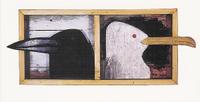Epictetus on the Art of Living
This spring, I took a class titled Organizational Dynamics and Leading Change in Organizations, taught by Vance Caesar. I thought it wonderful that Pepperdine University would take the contents of his executive coaching sessions and turn them into a graduate course.
One of the key concepts taught in the class was that we had to be able to change ourselves before we could ever ask those around us to change, and much of our learning experiences had to do with facing our own selves - an eye-opening and sometimes painful process.
 Vance's parting gift for each of us at the end of the class was a book on Epictetus' teachings in a wonderful translation by Sharon Lebell, titled the art of living - Epictetus. Although I have been an adherent of Stoic philosophy for many years before this, I had primarily viewed the philosophy's teachings to result in "stoically" enduring whatever life threw at me, a stark discipline to be practiced without joy. One of the wonderful realizations after immersing myself in Stoic Philosophy was its many parallels with Eastern philosophies, while, at the same time, focusing on "tactical" issues: If I persist in a way of "being", how would that manifest itself in my "doing"?
Vance's parting gift for each of us at the end of the class was a book on Epictetus' teachings in a wonderful translation by Sharon Lebell, titled the art of living - Epictetus. Although I have been an adherent of Stoic philosophy for many years before this, I had primarily viewed the philosophy's teachings to result in "stoically" enduring whatever life threw at me, a stark discipline to be practiced without joy. One of the wonderful realizations after immersing myself in Stoic Philosophy was its many parallels with Eastern philosophies, while, at the same time, focusing on "tactical" issues: If I persist in a way of "being", how would that manifest itself in my "doing"?Here is an excerpt:
Create Your Own Merit
Never depend on the admiration of others. There is no strength in it. Personal merit cannot be derived from an external source. It is not to be found in your personal associations, nor can it be found in the regard of other people. It is a fact of life that other people, even people who love you, will not necessarily agree with your ideas, understand you, or share your enthusiasms. Grow up! Who cares what other people think about you!
Create your own merit.
Personal merit cannot be achieved through our associations with people of excellence. You have been given your own work to do. Get to it right now, do your best at it, and don't be concerned with who is watching you.
Do your own useful work without regard to the honor or admiration your efforts might win from others. There is no such thing as vicarious merit.
Other people's triumphs and excellences belong to them. Likewise, your possessions may have excellence, but you yourself don't derive excellence from them.
Think about it: What is really your own? The use you make of your ideas, resources, and opportunities that come your way. Do you have books? Read them. Learn from them. Apply their wisdom. Do you have specialized knowledge? Put it to its full and good use. Do you have tools? Get them out and build or repair things with them. Do you have a good idea? Follow up and follow through on it. Make the most of what you've got and what is actually yours.
You can be justifiably happy with yourself and at ease when you've harmonized your actions with nature by recognizing what truly is your own.
Epictetus resources: http://philosophy.lander.edu/ethics/ethicsbook/c5057.html
Epictetus works: http://classics.mit.edu/Browse/index-Epictetus.html
Sharon Lebell - the art of living - Epictetus - http://www.amazon.com/exec/obidos/tg/detail/-/006251346X/qid=1124164933/sr=8-2/ref=pd_bbs_2/002-2871787-9172860?v=glance&s=books&n=507846
Vance Caesar - http://www.vancecaesar.com/









